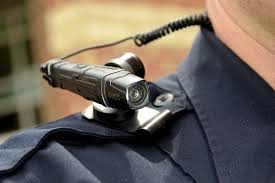When serving papers in New York, there are always issues on whether the legal documents are served correctly on a particular. If they are not served correctly, the person that should have been served can go into court and allege that service was improper. The Court can decide that a traverse hearing be held in order to deem whether service is proper or not. At this point, the process server would have to go into Court and testify as to how s/he effectuated service on the particular individual. These issues always come up in Courts in New York City most of all because of the volume of service and process servers incorrectly serving at the wrong location. This could be in any of the boroughs of Queens, Brooklyn, Manhattan and Bronx because of the density of the boroughs.
According to New York State law, before a court can render a judgment against you, it must first acquire Personal Jurisdiction over you. Personal jurisdiction is obtained by serving you with a summons and complaint; but, you must be properly served. Here are the ways you can be served:
- Personal Service – delivering a copy of the Summons and Complaint to you personally;
- Suitable Age and Discretion Service – delivering a copy of the summons and complaint to someone in your home of “suitable age and discretion” (someone competent enough to pass the papers on to you);
- Nail and Mail – After at least two failed attempts at personal or suitable age and discretion service, the process server may post a copy of the summons and complaint to the door and mail a copy to your last known address.
When you file an order to show cause challenging service of process, there are four possible outcomes for an Order to Show Cause to vacate a default judgment:
- The motion is denied on all grounds and the judgment stands.
- The court grants the motion and dismisses the case for clack of personal jurisdiction because the affidavit of service is facially defective (i.e., what the process server has alleged does not constitute proper service) or the defendant has documentary evidence sufficient to refute the truth of the process server’s claims (e.g., proof that the defendant did not reside at the place where service was effected, proof that the defendant or person of suitable age and discretion could not have been served at the time and place alleged).
- The motion is granted to the extent that the judgment is vacated but denied as to dismissal of the complaint. In this case, the court will generally grant the defendant a certain period of time to answer the Complaint if he or she has not already done so.
- The Court schedules a traverse hearing to determine whether service is proper. At a traverse hearing the burden is on the debt collector to call the process server as a witness and testify as to the service. The Court either decides at the hearing that service was improper as a matter of law and dismisses the Complaint without prejudice or, more likely, orders plaintiff to re-serve the Complaint properly. The Court might allow re-service of the Complaint right there in court.
Pursuant to New York General Business Law Section 89-cc, a process server is required keep a log including the details of the service. The log must include:
“legible record of all service made by him as prescribed in this section. Such records shall be kept in chronological order in a bound, paginated volume. […]. The record to be maintained shall include the following information, where applicable: (a) the title of the action or a reasonable abbreviation thereof; (b) the name of the person served, if known; (c) the date and approximate time service was effected; (d) the address where service was effected; (e) the nature of the papers served; (f) the court in which the action has been commenced; (g) the index number of the action, if known; (h) if service is effectuated pursuant to subdivision four of section three hundred eight of the civil practice law and rules or subdivision one of section seven hundred thirty-five of the real property actions and proceedings law, a description of the color of the door to which the summons is affixed; (i) the process serving agency from whom the process served was received, if any; (j) type of service effected whether personal, substituted or conspicuous; (k) if service is effected pursuant to subdivision one, two or three of section three hundred eight of the civil practice law and rules, the record shall also include the description of the person served, including, but not limited to sex, color of skin, hair color, approximate age, height and weight and other identifying features; (l) if service is effected pursuant to subdivision four of section three hundred eight of the civil practice law and rules, the record shall also include the dates, addresses and time of attempted service pursuant to subdivision one, two or three of such section; (m) if the process server files an affidavit of service with the court, his record shall include the date of such filing.”
At the traverse hearing the process server must have this log available and be able to testify about the details of the alleged service. In practice, especially with older cases, the process server cannot be found and if he or she is found, either can’t recall the details of the service or has failed to maintain his or her log.
Our process servers here at DJ&H Process Service are compliant with the rules of law and are fully licensed with Department of Consumer Affairs. They are familiar with Traverse Hearings and what the Courts will be looking for at the hearings. They will be able to testify that service was proper as traverse hearing should need be. Call DJ&H Process Service for service of process.
http://djhprocessservice.net/traverse-hearings-and-why-you-need-a-licensed-nyc-process-server/
